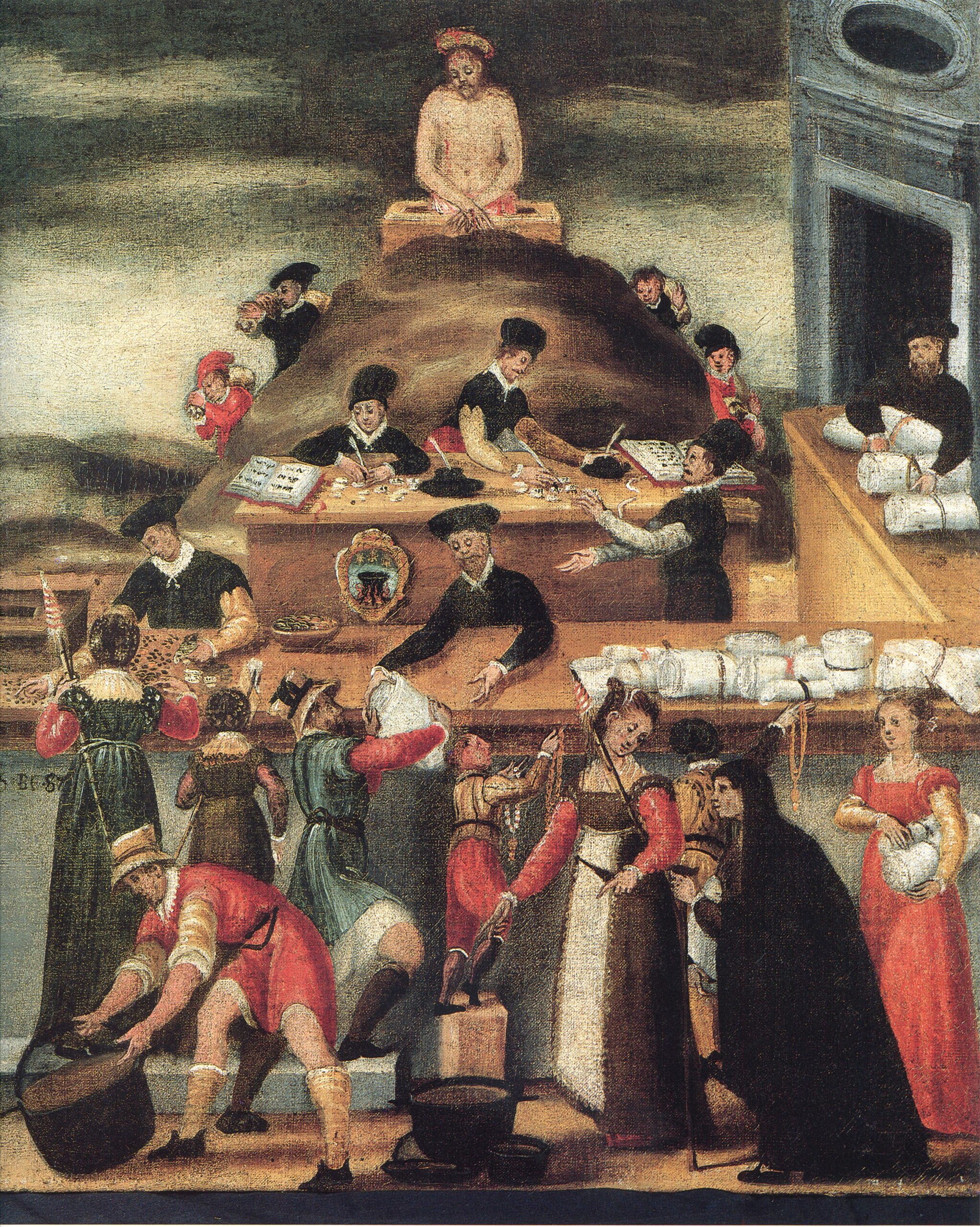Maria Giuseppina Muzzarelli, Piety and Pawnbroking: Decorated Account Books.
The first Monti di Pietà or mounts of piety, public banks that provided solidaristic credit, date from the 1460s. It is generally thought that the first was founded in Perugia in 1462, while the Monte di Bologna opened its doors about a decade later, in 1473. The service offered was similar to that of the loan bank-pawnbrokers mainly managed by Jewish bankers that had been present in almost all towns in Italy since the 13th century. The Monti differed from this previous institution in a significant way. First of all, from the outset they were public institutions whose aim was to meet citizens’ economic needs by offering a service that could be classed as providing a form of welfare. Another significant difference lay in their target of customers, the so-called pauperes pinguiores (the least poor of the poor), to whom they granted small loans at favourable conditions requiring the sole reimbursement of 5% per annum in management fees, with the aim to help the clients to get through periods of misfortune. But the key novelty of the Monte’s service was [...]



